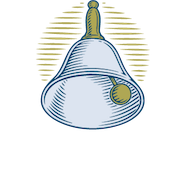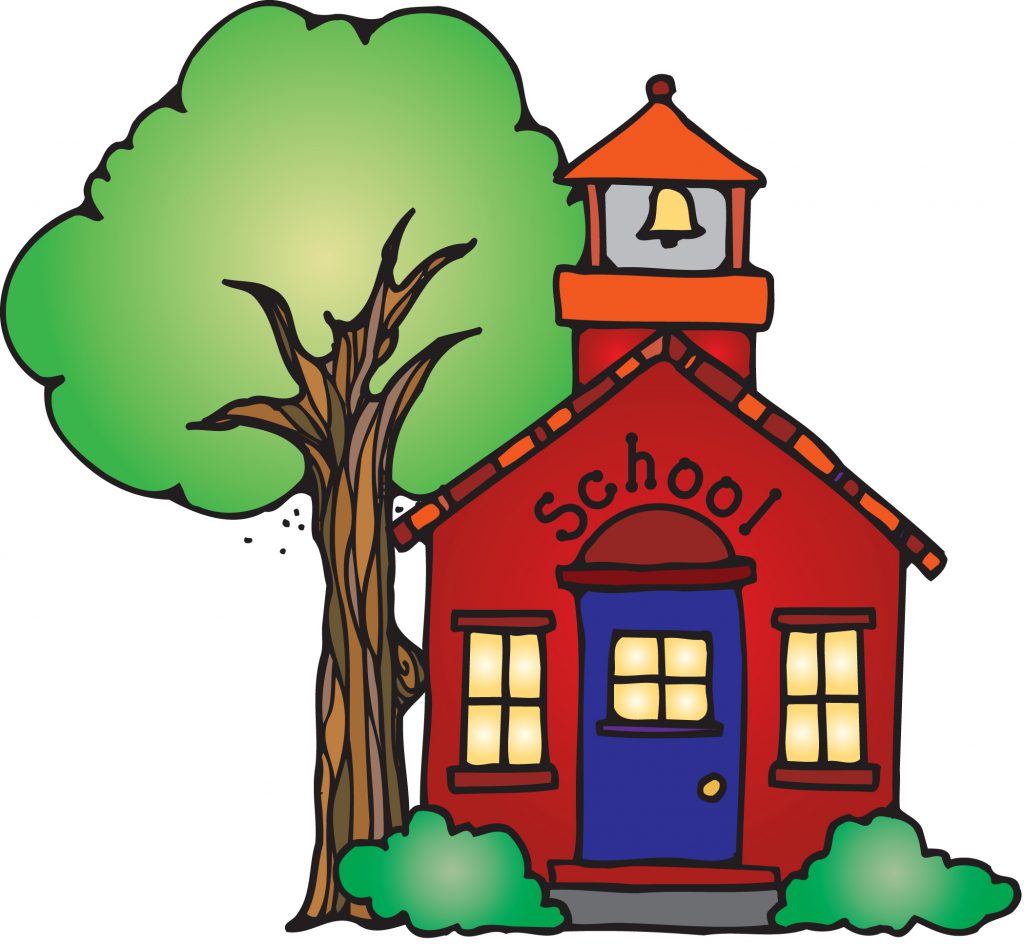 Ellington Montessori School’s Toddler Program is designed to give children ages 15 months* to 2.5 years a warm, nurturing ‘home away from home,’ where they are supported in:
Ellington Montessori School’s Toddler Program is designed to give children ages 15 months* to 2.5 years a warm, nurturing ‘home away from home,’ where they are supported in:
- Taking their first steps toward independence
- Strengthening their speech and language
- Strengthening fine and gross motor skills
- Learning to work and play in a diverse, cooperative community
*Must be able to walk without assistance and self-feed
Program Details
Teachers
Toddler teachers augment their undergraduate or graduate-level experience in Early Childhood Education (ECE) with Montessori-based training and certification. Each classroom is also supported by a qualified Early Childhood Assistant (ECA).
Classroom Composition
EMS has one dedicated Toddler Classroom, with children ranging in age from 15 months to 2.5 years. We maintain a ratio of 1 staff : 5 children.
Half-Day, Full-Day and Extended Care Programs
The EMS half-day Toddler Program runs from 8:30 to 11:30 a.m.; the program includes snack and ends prior to lunchtime. The full-day program runs from 8:30 to 3:30 p.m. An extended care program is also available from 7:30 to 8:30 a.m. and 3:30 to 6:00 p.m., to better accommodate parental schedules.
Transition to the EMS Casa Program (Pre-school)
Children transition from the Toddler Program to the Casa Program when they are developmentally ready. Children generally move between the ages 2.5 and 3 and may transition at any point in the academic year.
Daily Schedule*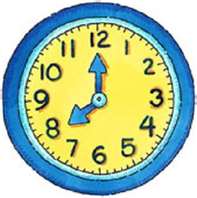
7:30 – 8:30 – Before school program (If enrolled)
8:30 – 8:45 – Arrival
8:45 – 9:30 – French lesson
9:30-10:00 – Washroom routine; Morning snack
10:00-10:30 – Music lesson; Montessori activity
10:30 – 11:30 – Montessori activity; Outdoor play (Weather Permitting)
11:30 – Half-day student dismissal
11:30-12:30 – Washroom routine; Lunch
12:30-1:00 – Montessori Activity
1:00 – 3:00 – Nap/Quiet play
3:00 – 3:30 – Outdoor Play (Weather permitting)
3:30 – Dismissal
3:30 – 6:00 – After school program (if enrolled)
*Subject to change
Toddler Room Set Up
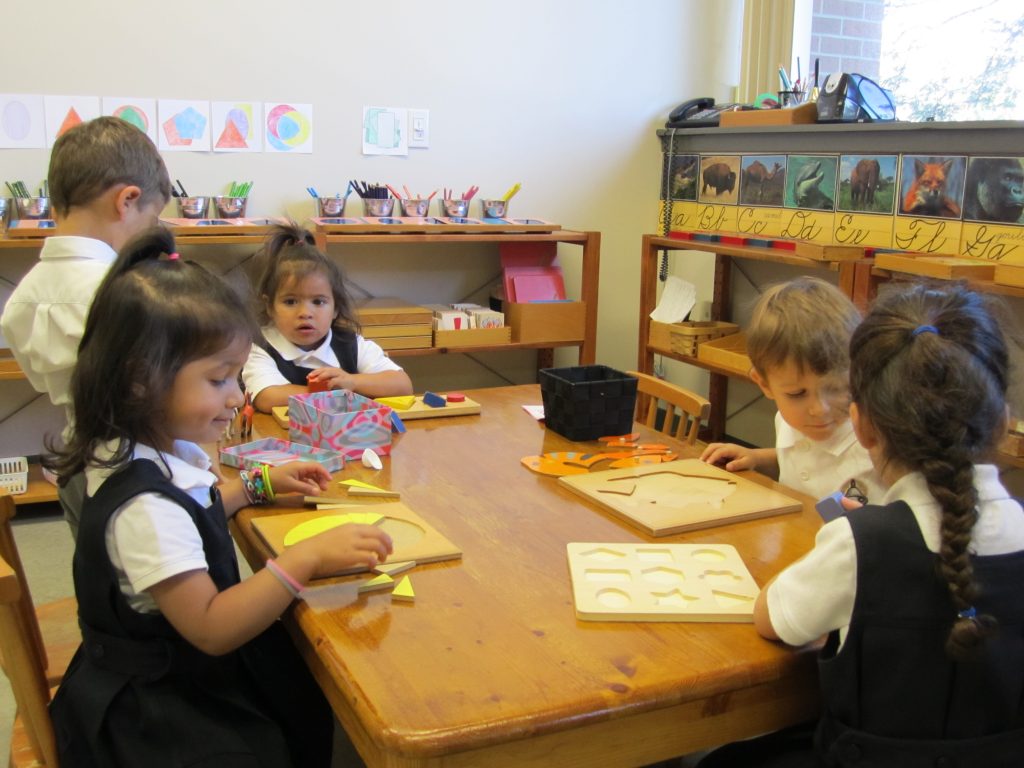 Montessori classrooms are designed to be peaceful, happy places that meet the needs of each child in every stage of their development. Bright and attractive colours, natural materials, interesting cultural objects and pictures offer the children sensory and intellectual experiences.
Montessori classrooms are designed to be peaceful, happy places that meet the needs of each child in every stage of their development. Bright and attractive colours, natural materials, interesting cultural objects and pictures offer the children sensory and intellectual experiences.
The classroom is structured to accommodate several learning centres that allow for children to work in various ways (e.g. individually, in pairs, in small groups, in large groups, at tables, on the floor.) The learning centres allow children to make choices from a range of available, developmentally appropriate activities that stimulate learning through the use of traditional Montessori-based materials.
In addition to the Montessori materials, all items within the classroom are scaled to the child’s size, including furniture, shelves, utensils, dish-ware, cleaning implements and washroom facilities.
In true Montessori fashion, there is no focal centre to the classroom; this reflects that the teacher is not the focus of the children’s attention, but that they are all one community together. In addition to the planned Education Curriculum activities, a variety of play equipment, toys, and materials are offered.
Curriculum Goals
1. To develop children’s self-esteem by ensuring that they feel valued, respected, and cared for as individuals. This is achieved by cultivating authentic, caring relationships and connections to create a sense of belonging among and between children, adults, and the world around them.
2. To nurture healthy development and support the child’s growing sense of self. By ensuring flexibility and choice, we foster a sense of autonomy and support the child’s growth.
3. To provide the children with an Montessori-enriched environment that engages children in active, creative, play and inquiry. By providing the children with opportunities for meaningful exploration, experimentation and problem solving, we develop their senses and encourage their feelings of competence and independence.
4. To foster communication and expression in all forms and encourage the development of positive social skills and life skills.
5. To prepare the children for a smooth transition to the Casa/Preschool program. This includes learning skills to be successful once they graduate, and through visits to the new classroom to participate in different routines and activities.
Curriculum Overview
Our Montessori-based Toddler curriculum is aligned with the Ontario government’s pedagogical approaches to education and supports the physical, cognitive, social and emotional development of each child within a safe and nurturing environment. Toddlers strengthen speech and language development and both fine and gross motor skills as they explore self, family and the world in which they live.
The Toddler program prepares toddlers for preschool work by exposing them to each area of EMS’ Montessori curriculum. The toddlers learn concentration, coordination, language skills, responsibility and respect—all of which prepare them well for a successful transition into our Casa Program.
Montessori Activities (Toddler Program)
Practical Life
Children are naturally interested in activities they see adults doing on a daily basis. Therefore, Dr. Montessori began using what she called “Practical Life Exercises” to allow the child to do activities of daily life and therefore adapt and orientate themselves in society.
The activities found in this area of the classroom, provide real life experiences for children. The exercises in Practical Life provide purposeful activity, develop motor control and coordination, develop independence, concentration, and a sense of responsibility.
Examples of Practical Life activities:
- Control of Movement
- Pouring, Scooping, & Spooning work
- Transferring work (both for whole hand and fingers)
- Sorting (colours, shapes, sizes)
- Stringing Beads & Lacing Cards
- Care of Person
- Dressing Frames
- Folding (napkin, washcloth)
- Scrubbing and washing
- Care of Environment
- Sweeping and mopping
- Polishing
- Dusting
Sensorial
The purpose and aim of Sensorial work is for the child to acquire clear, conscious, information and to be able to then make classifications in his environment. Through their five senses, the child studies their environment and therefore begins to understand it.
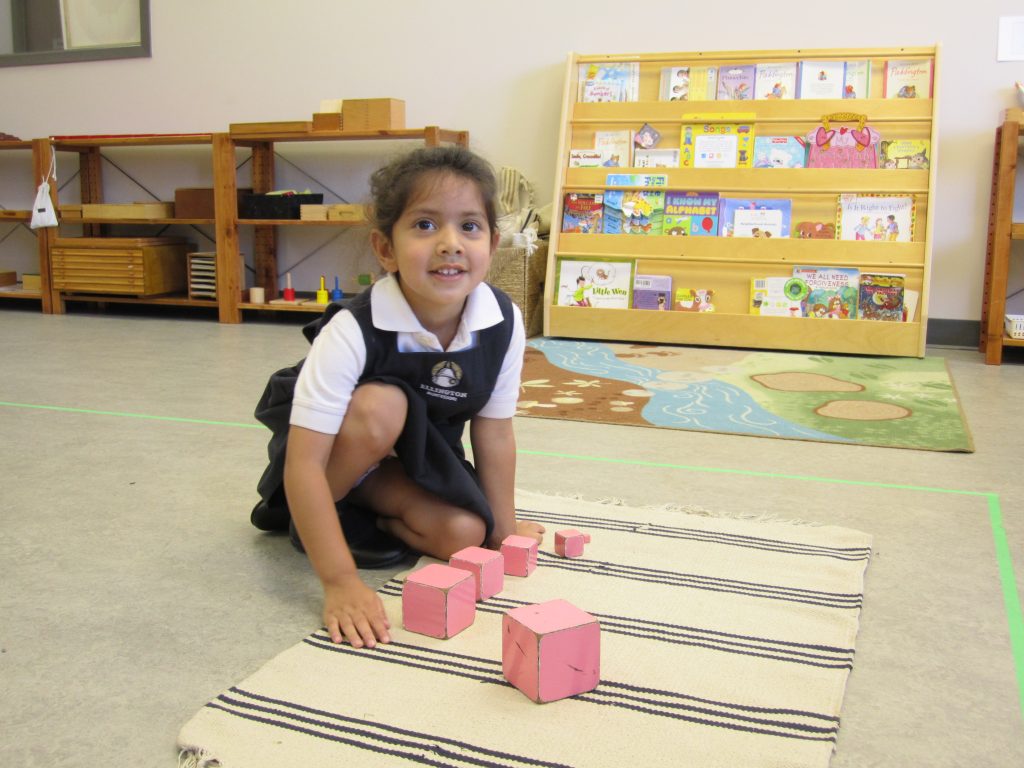
By working with sensorial materials, the child is given the keys to classifying the things around them, which then develops the ability to better adapt to their environment.
Examples Sensorial Activities:
1. Pink Tower
2. Small Cylinder Block Set
3. Coloured Cylinders
Language
The most important language materials for a toddler are the materials and experiences in the child’s environment. Reinforcing the importance of verbal communication, speaking clearly, and supporting the child’s expanding vocabulary are a daily process in the toddler environment. For the toddler, written language is experienced through the adult’s oral reading and story time.
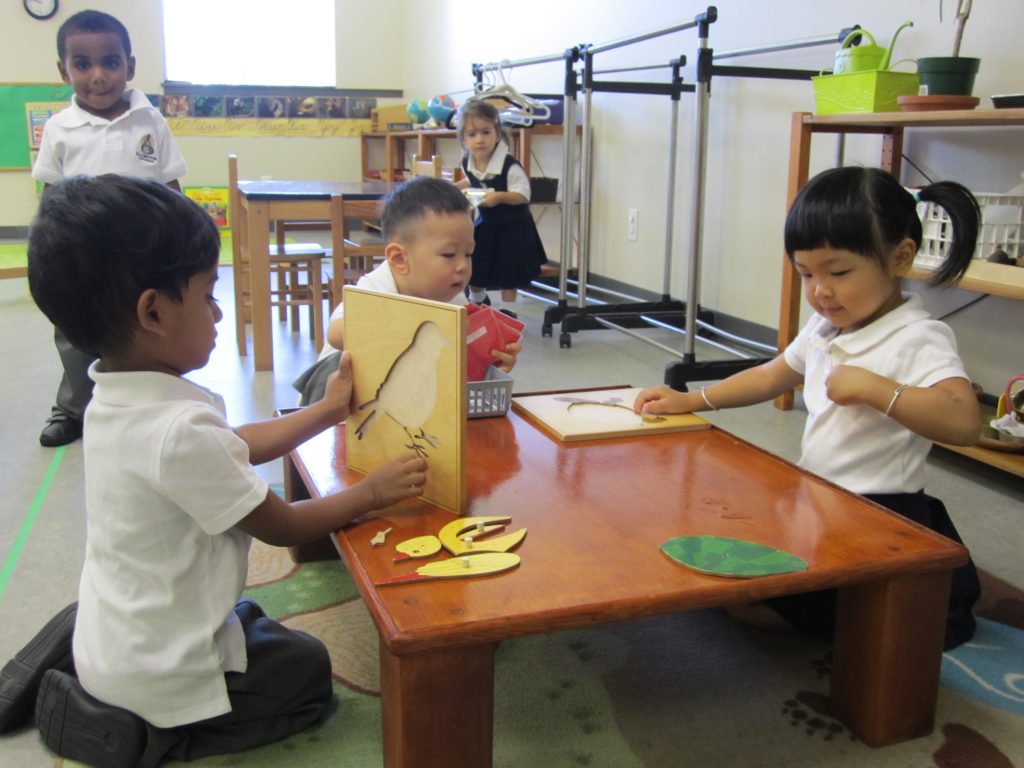
Examples of Language Activities:
- Wooden puzzles
- Matching Work (picture/picture, object/picture, etc.)
- Picture Sequencing
- Sandpaper Letters
- Classification Materials
- Pre-reading
- Matching cards
- Vocabulary cards
- Stories read aloud
- Size and shape discrimination exercises
- Picture-word cards
- Matching
- Tracing objects
- Tracing shapes
- Word recognition
- Sandpaper letters
- Isolating initial sounds
- Pre-writing
- Sandbox tracing
Math
Dr. Maria Montessori believed that a child’s mind is mathematical and based on the order and perceptual awareness found in the development of the senses. The acquisition of mathematical principles is seen as developing logically from concrete to abstract and simple to complex. The child who has experienced basic concepts involved with the practical life and sensorial materials progresses naturally to the beginning math activities. We make this enjoyable by providing these every day activities:
- Counting activities
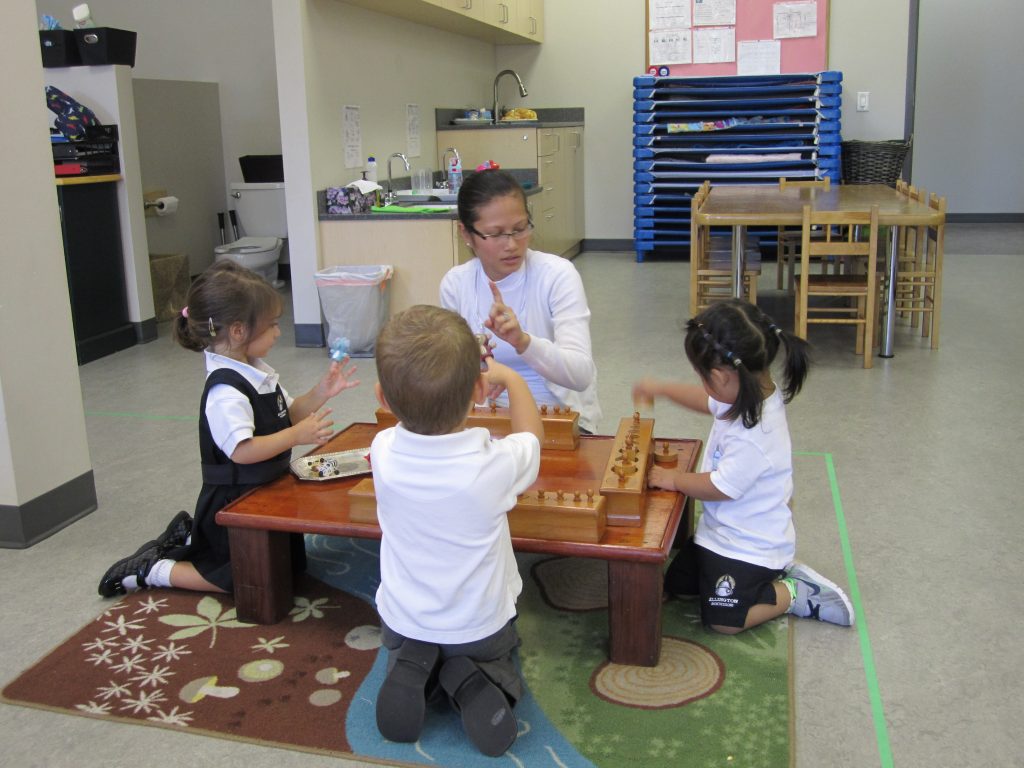
Toddlers working with Spindle Boxes - Counting songs
- Counting fingers, animals, children, objects in the environment, etc.
- Spindle boxes
- Sandpaper numerals
- Stacking and Nesting Cubes
- Numeral sandbox tracing
- Number blocks and puzzles
- Sorting and counting materials
- Concept of Time
- Daily routine
- Periods of the day (morning, afternoon, evening)
- Seasons
Mealtime
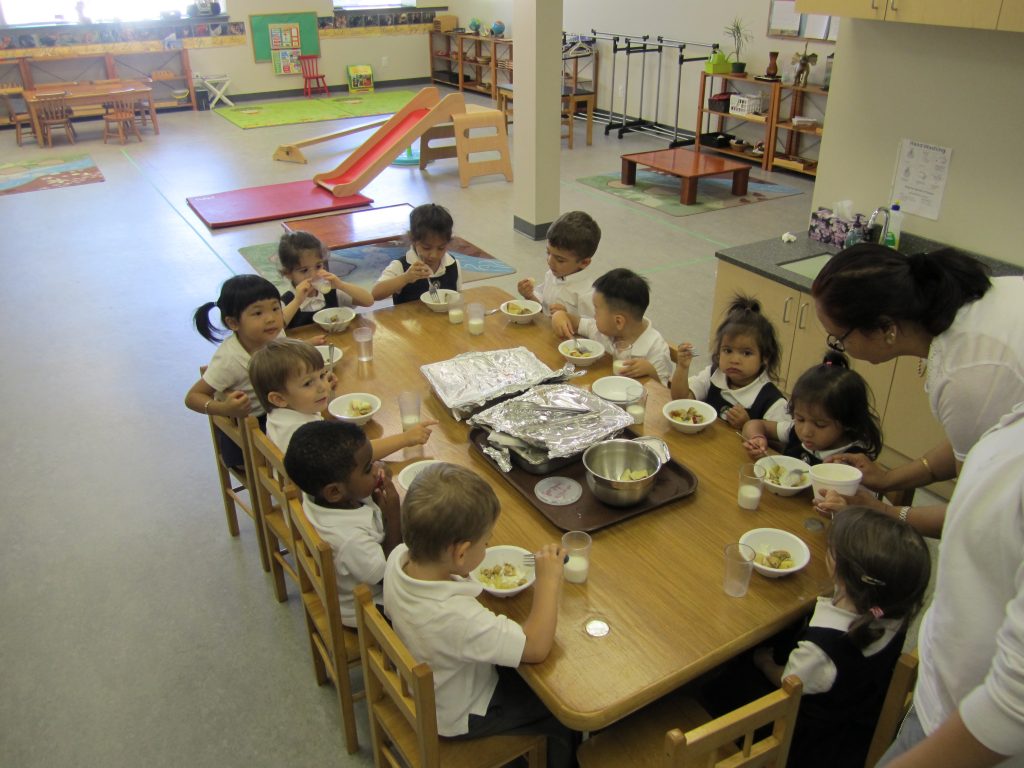
Meal and snack time provide excellent learning opportunities for children. While eating with others, children explore their five senses, develop healthy eating habits, as well as positive social and language skills.
All of our lunches and snacks are catered by Occasions Catering. Their Healthy Head Start program provides nutritious meals for children, preparing food substitutions for allergies and food restrictions. Healthy Head Start Menus follow the Canadian Food Guide and are approved by a Registered Dietitian.
Diapering & Toilet Training
Each child has an assigned cubby area to store clothes and diapering items.
Toddler diapers are changed at least every two hours, and as needed throughout the day. Parents are required to provide the school with enough diapers and wipes to properly care for their child’s needs each day.
Nap Time
In the Toddler program there is a scheduled group “nap time” after lunch each day. This quiet rest period is approximately 2 hours long and children who wake early or do not sleep will be provided with quiet activities to work on.
Outdoor Play
Outdoor environments are important in Montessori schools, and offer opportunities to engage with the natural world. EMS is situated on two and a half acres of outdoor green space and a provides a large, fenced in garden area where the Toddler class enjoys their outdoor play time.
Weather permitting, the toddlers will go outside for up to two hours each day (one hour in the morning and one hour in the afternoon).
Parent Communications
At EMS, we work hard to keep the lines of communication open and do our best to proactively communicate with our students and their families. Face-to-face conversations are preferred, but not always required. Here are some of the ways we keep families informed:
- Daily Overview Report (Toddler only)
- EMS Connect: Monthly E-Newsletter
- EMS Bulletin: E-Bulletins (as required)
- EMS Website & Parent Portal
- Remind App
- EMS Facebook and Twitter Pages
Parent-Teacher conferences are held twice annually. These conferences are a fantastic collaboration opportunity to discuss your child’s progress within the program and update on any new information. Should a family require an appointment outside of set conference dates, the faculty have specific days on which they are available to meet outside of school hours.
We encourage you, in partnership with the centre to provide any relevant information to the centre staff about your child while at home (sleep patterns, last meal, behaviour/moods, etc). We recognize that children are active partners in their own learning and parental collaboration is encouraged and welcomed at all times.
